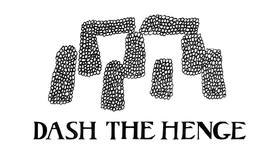
Tony Allen
Lagos Shake
Regular price
$51.00
Sale price
$55.00
Unit price
per
Since 2002, Honest Jon's has been one of the strongest anthologizers of local scenes on the planet. Whether it be 1970's Lagos, 1920’s Baghdad, 1970’s Cuban New York, or 1920’s black London, the label has been able to highlight the unique moment when indigenous communities cross paths with Western culture. At their best, Honest Jon’s—like Soul Jazz and Soundway—offer an eye-opening portrait of a rich musical world that’s long been left behind. The label has been paying especially close attention to the work of Nigerian drummer Tony Allen, who currently plays drums in The Good, The Bad, and The Queen, the band fronted by former Blur singer and Honest Jon’s co-founder Damon Albarn.
Two years ago, they released what has been since dubbed Allen's comeback album, Lagos No Shaking. The record was Allen’s first work to be recorded on Nigerian soil since the early '80s, and though it didn’t match the urgency and sense of discovery that came with his initial outings in the late '60s with Fela Kuti, the slower pace nevertheless showcased the Afrobeat pioneer reconnecting with the vibe that had at least made his early albums so engaging. Ever since its release, Honest Jon’s has been making a concerted effort to connect Allen's brand of Afrobeat with the current world of dance music, issuing a series of limited-run 12-inch remixes and remakes that have put tracks from that album in the hands of a new generation of dance producers, among them Carl Craig, Moritz Von Oswald, Mark Ernestus, and Diplo.
Lagos Shake: A Tony Allen Chop Up finally collects ten of those singles onto one disc, in an attempt to reassert Tony Allen as a pioneer of proto-dance music for today’s audiences. It's not hard to see where HJ was coming from. Afrobeat’s influence on the template of Western dance music can be felt everywhere these days—even though we don’t readily note it anymore—and as the musical director of Fela Kuti’s Africa 70 and Egypt 80 bands, Allen played a large role in shaping that sound.
Afrobeat fused indigenous African music with unwieldy American jazz imports and the compulsive funk of James Brown, culminating in the kind of marathon percussive transcendentalism that has found its way into everything from Tom Moulton’s early disco edits to the more tribal aspects of early house and techno, the drum and bass movement, and even all the way through to Ricardo Villalobos’ reliance on polyrhythmic beat patterns in minimal techno.
Allen’s early arrangements focused on hypnotic and often minimal cycles of drums, bass, and brass that joined together in a strong, locked vibe. And though 2006’s Lagos No Shaking opted for jazzier, more song-oriented fare, all of the interpreters taking a go at the material for the 12-inch series appear to be in agreement that they would use the source tapes to inject something of those earlier, leaner Tony Allen productions to guide their tracks. In the end, that collective decision—consciously made or not—is what holds this disc together.
Whether it be the baile-funk of Diplo, the towering dub-techno of Moritz Von Oswald and Mark Ernestus, the leftfield jazz of Hypnotic Brass Ensemble, or the samba of Son Palenque De Colombia, the base remains the same: a more organic, more intuitive, and frankly messier (in the best sense) approach to building a groove. Chicago’s Hypnotic Brass Ensemble, Colombia’s Son Palenque De Colombia, and Egypt’s Salah Ragab hone in on the massive horns and crisp syncopated drumming to pull off their remakes. In Carl Craig’s hands, “Kilode” has its tight structure unhinged and amped up; he stretches apart the bongos, vocals, and bass, giving them space to breathe, and then strings them all together again with an insistent synth stab and a kick-drum. Diplo, on the other hand, delivers a virtual tam-tam session of competing drums, bongos, and drum machines. Even Moritz Von Oswald’s ten-minute “Ole Remix” brings in the bongos for one of the more refreshing tracks he’s offered up in recent years.
Only Mark Ernestus relies on the funk bass for “Mark’s Disco Dub,” turning in a slow-burning dub track that is one of the best of many highlights here. Not all the tracks end up as memorable, and those that don’t register a strong impression tend to stick a bit too closely to the template they know. In re-working “Awa Na Re,” Bonde Do Role doesn’t do much more than recreate the increasingly predictable style of two-dimensional baile-funk party tracks they’ve become known for.
Meanwhile, Dizze Rascal protégés The Newham Generals push their mix of “Tetsuya’s Theme” too far into grimey-synth territory to warrant any real comparison to Tony Allen’s original. It’s all very energetic and functional, but like the Bondo Do Role mix, “Tetsuya” doesn’t really attempt any kind of relationship with the original apart from a few errant samples. Which is a shame, because here their contributions stand out as weak spots among the company of eight other heavy-hitters from around the globe, all of who have made use of this opportunity to push the rich Afrobeat influence into their own brand of club music. Given that dance music’s origins are neither European nor North American, revisiting Tony Allen’s work like this offers a timely reminder that the most reliable producers we have today are the ones who consistently reach outside the framework of current club music for their percussive potentials.

